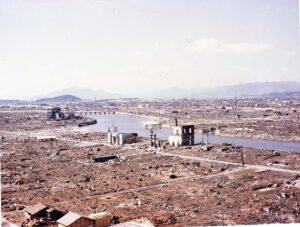Murder triggers riots in Antwerp
An Arab civil rights activist was arrested in Antwerp after unrest following the suspected racist killing of a young man.
The body of 27-year-old Mohammed Achrak was flown to Morocco for burial earlier this week, after he was gunned down on 26 November in Antwerp's mainly immigrant neighbourhood of Borgerhout at the hands of a 66-year-old Belgian neighbour. He had been on his way to break the Ramadan fast with his parents.
The killing was eclipsed by rioting and the arrest of civil rights activist Dyab Abou Jahjah, president of the Antwerp-based Arab European League (AEL), on Thursday evening in Deurne.
At Friday's funeral in Antwerp, attended by thousands of well-wishers, one of Achrak's four brothers, Satif, repeated his family's moving appeal for calm. “My brother dreamt of a society where everyone respects each other's differences,” the younger Achrak began. “Let's not allow new victims to fall. We must work together towards a future for everyone: white or black, Moroccan or Belgian, Muslim or non-Muslim.”
The courts have not ruled out that the murder was racially motivated. But Antwerp police and certain politicians were quick to dismiss the killing as the act of a mad man.
Members of Prime Minister Guy Verhofstadt's Flemish Liberal party (VLD) and the anti-immigrant Vlaams Blok blamed the outspoken Abou Jahjah for provoking the riots. “The league is trying to terrorise the city,” the premier told parliament. “If we have to ban this organisation, then we will do so, but it will be within the rule of law and on the basis of what the public prosecutor decides.”
But Drice De Ruyyer, the prime minister's security adviser, and Interior Minister Antoine Duquesne went further, suggesting the law could be amended in order to ban the AEL.
The government's response to the murder and the riots has left a bitter taste among the Arab community, still haunted by the racist murder of a Moroccan couple in their home in Schaerbeek barely six months ago. “There is a mood of pessimism in coffee shops, mosques and homes,” said Sarie Abdel-Salam, head of the Moroccan Workers' Union.
Experts fear that electoral point-scoring against the Vlaams Blok in the run-up to next year's elections may have been the driving force behind Abou Jahjah's arrest, which was welcomed by the VLD and a few newspapers.
At the AEL leader's first court appearance on charges of conspiracy to cause disorder, criminal damage and wounding a police officer, it was ruled that Abou Jahjah was to be released on condition that he does not take part in any street protests for the next three months.
As The Bulletin went to press, it was unclear whether an appeal against his liberation would be lodged by the public prosecutor, who had 24 hours to repeal the ruling.
“There is no legal foundation for this case, it is a political intervention,” Abdel-Salam argues. “I don't really agree with Abou Jahjah's politics… But he is not a threat to society.”
The AEL, who adamantly reject the charges levelled against their leader, have described the case as “a real test for democracy in Belgium”. They have called on their members and sympathisers to maintain the peace, while defiantly pledging to continue their police monitoring patrols, an activity they launched in Antwerp last month in an attempt to combat alleged harassment of Arab youth by police.
“Abou Jahjah's arrest was a political one directed by the prime minister and his (cabinet),” notes Professor Herman de Ley, director of the Centre for Islam in Europe at Ghent University. “Paranoia and electoral opportunism were the main motives. The fundamental principle of the separation between the judiciary and government has been violated.”
De Ley and other commentators blame the government for demonising Abou Jahjah in order to divert attention from its own failure to address the problems of immigrants. “Abou Jahjah is not the cause of the problem, he is the consequence,” political scientist Cas Mudde was quoted as saying.
There are already spreading signs of disquiet in the political establishment and the media. The Flemish socialist SP.A and Agalev, the green party, have broken ranks and voiced their doubts about the soundness of the case against Abou Jahjah.
Some commentators see the growing media interest in the problems facing the immigrant community as a promising development. They hope that once the dust has settled, proper dialogue will lead to a mandate for change as occurred following anti-police riots in Brussels in 1997.
“We can say what we like about Abou Jahjah and his provocative ways, but he has sparked the kind of debate we've been calling for for years,” notes unionist Abdel-Salam.
______
This article appeared in the 5 December 2002 issue of The Bulletin.


